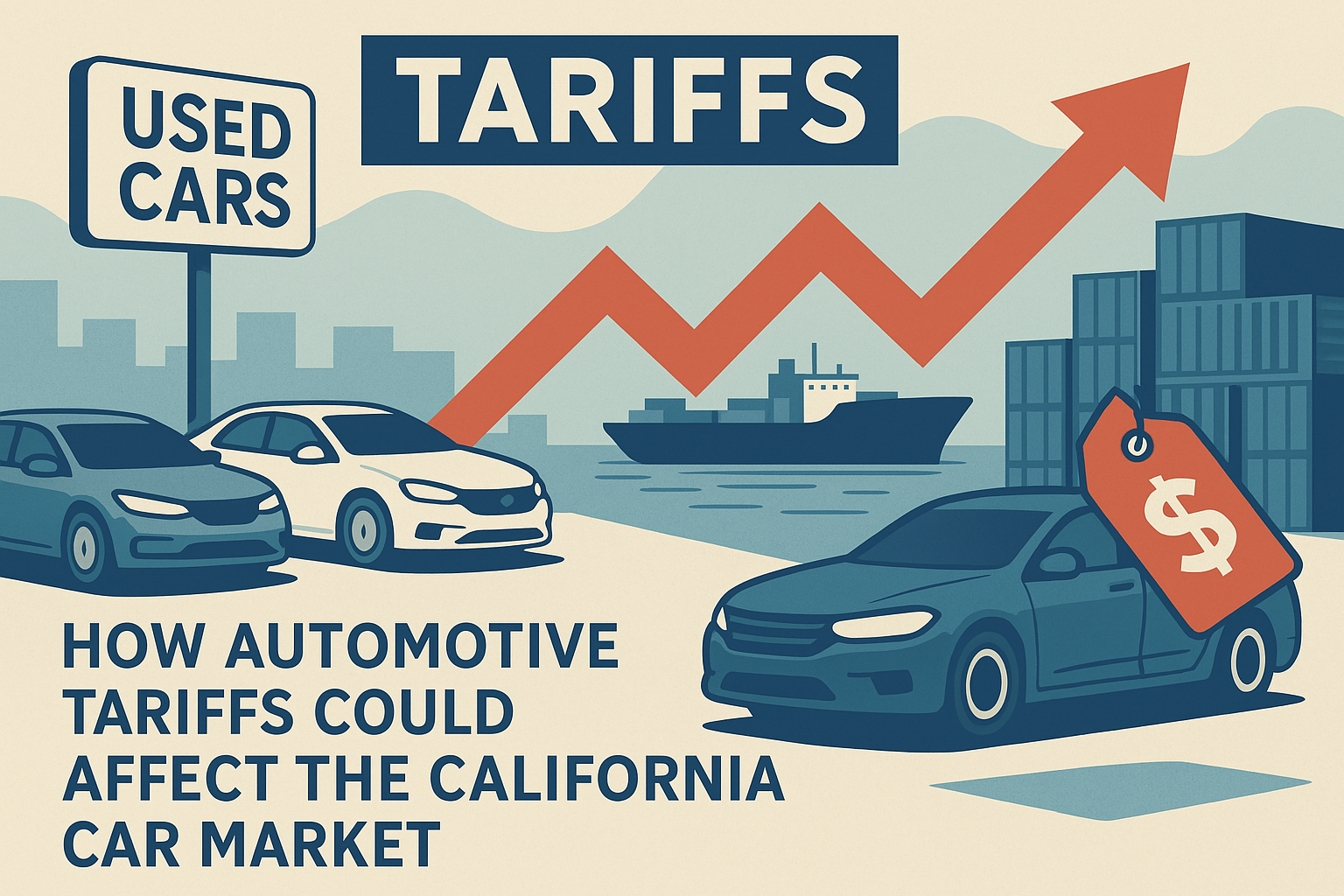How Automotive Tariffs Could Affect the California Car Market
April 8th, 2025 by Garrett Eddings
Tariffs on the Rise: What California Car Dealers Need to Know

Automotive tariffs — import taxes placed on vehicles and vehicle parts — are making headlines again, and California, with its massive car market and reliance on imported vehicles, is likely to feel the effects more than most.
Whether you're a dealership owner, a used car buyer, or someone thinking about getting into the business, it's important to understand how these tariffs could reshape vehicle pricing, inventory sourcing, and consumer behavior in the state.
How Tariffs Work in the Auto Industry
Tariffs are essentially taxes imposed on goods brought into the country. When it comes to cars, this could include:
- Fully assembled imported vehicles (such as those from Japan, Germany, or South Korea)
- Imported auto parts used by U.S. manufacturers or independent repair shops
When tariffs go up, the cost of those vehicles or parts rises — and those increases often get passed down to consumers and dealerships.
Impact on the California New and Used Car Market
California is the nation's largest auto market and one of the biggest consumers of imported vehicles. From Toyota and Honda to BMW and Hyundai, the Golden State leans heavily on foreign automakers.
Here’s how new tariffs might impact the local market:
- Higher Prices for New Vehicles: Imported new cars may become significantly more expensive, reducing demand.
- Increased Demand for Used Cars: As new cars become less affordable, more consumers will turn to used vehicles — good news for used car dealers.
- Parts Costs Will Rise: Imported parts used for repairs or reconditioning inventory could become pricier, impacting profit margins.
- Inventory May Shrink: If import volume drops, dealers may find it harder to acquire vehicles at competitive prices.
What This Means for California Dealerships
If you’re a used car dealer in California, here are a few takeaways:
- Opportunity: Used car demand is likely to rise. If you’re well-positioned with inventory and marketing, this could be a growth moment.
- Margins: Higher reconditioning costs mean you’ll need to tighten up sourcing and pricing strategy.
- Adaptability: Local sourcing, auction buying, and fleet partnerships may become more valuable than ever.
Thinking of Starting a Dealership? Now Might Be the Time
Tariff volatility could shake up the California car market — and that often means opportunity for newcomers who move fast. If you’ve been thinking about starting your own used car dealership, the window to get in is open.
California Dealer Academy can help you get licensed, bonded, and operational in as little as 30 days.
???? Schedule your free consultation to see how we can help you build a resilient dealership — no matter what the market throws your way.
Final Thoughts
Automotive tariffs are a big deal, and California isn’t immune. While they bring uncertainty, they also open the door to strategic shifts, especially for used car dealers who are nimble, informed, and well-supported.
Stay ahead of the curve — and if you're ready to jump into the dealership world, we're ready to help you do it the right way.
Note: This article is for informational purposes only and does not constitute legal or financial advice. Please consult a professional for your specific situation.
Posted in: Education
